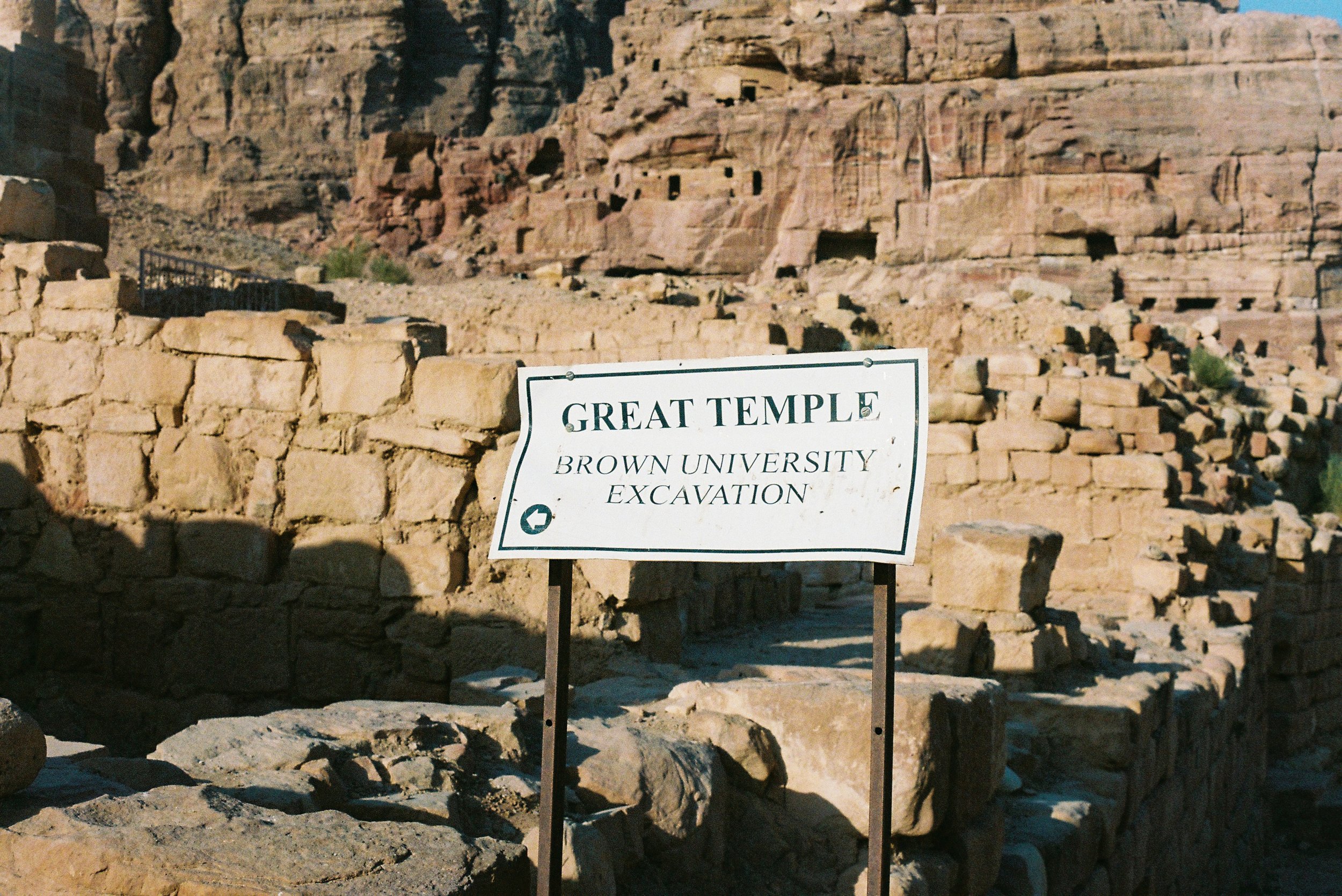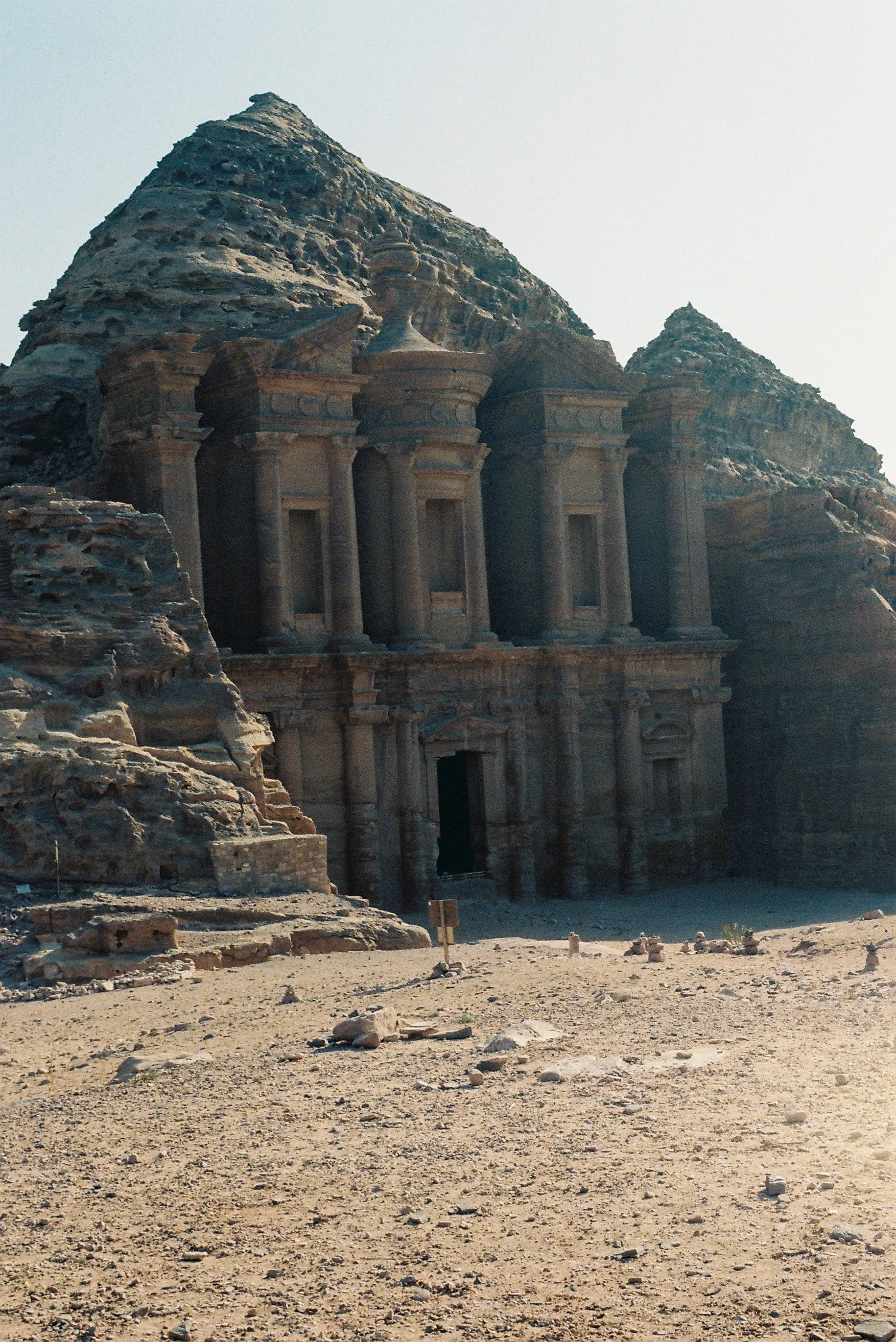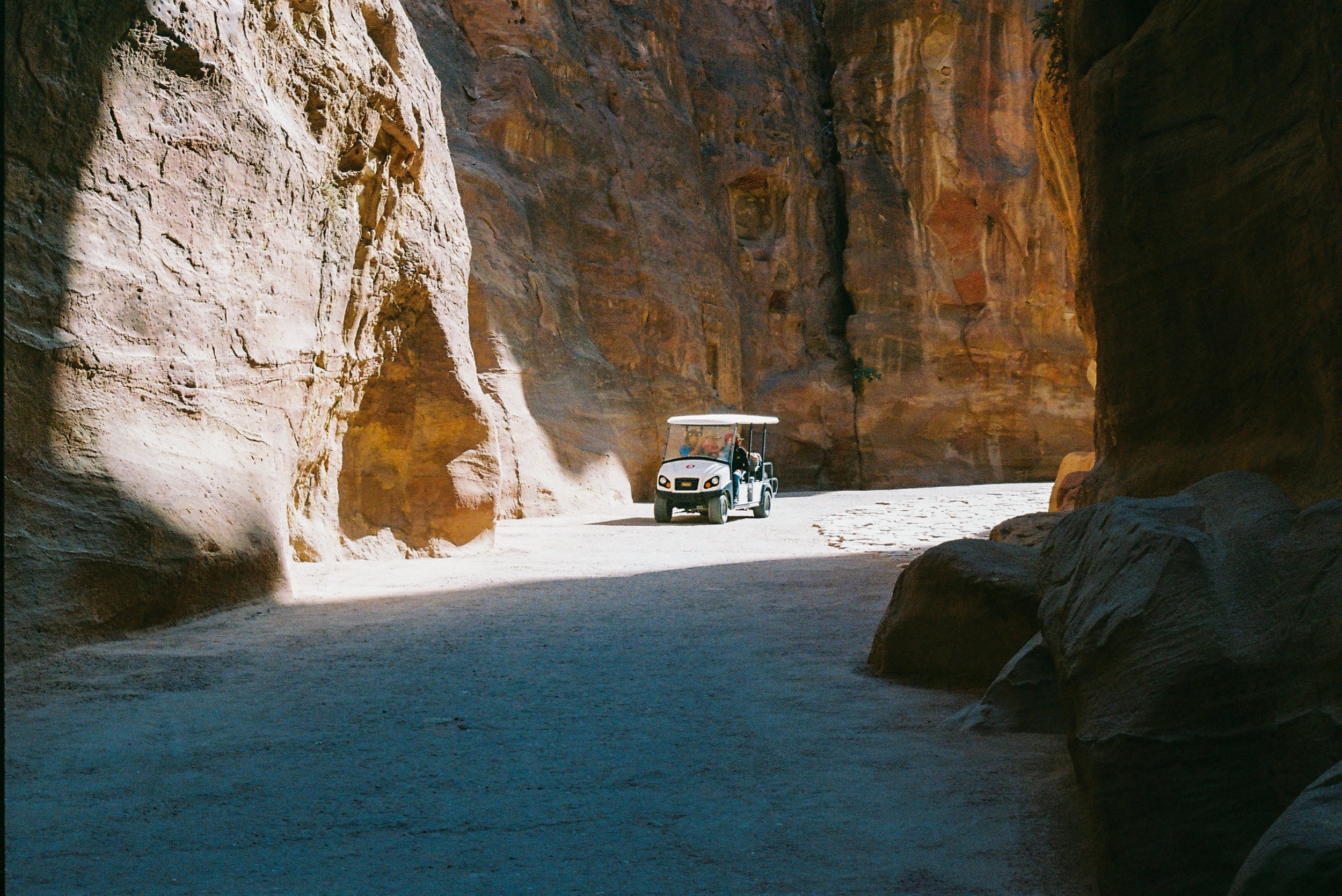JORDAN BY FINLAY RENWICK
IN JORDAN
“There’s just… nothing around, is there?” Says my mother from the back of the taxi. She’s right… sort of. There is a kind of nothing. During the hours and hours and hours that it takes us to travel from the Dead Sea in the east, 400 metres below the ocean, to Petra in the southwest, we pass a landscape far from the grey and green dichotomy of England — the sallow winter light, low hills and dying high streets. This is the desert proper, a seemingly infinite stretch of ochre and sun-blasted rock. A warped Hepworth sculpture in ancient, endless pastel stone and sand.
“300 Dinar each,” says the driver with an arch of his eyebrow as we drift past a Bedouin shepherd ushering his goats along the roadside. My legs are going numb. Several times on the journey, like a strange oasis, we roll through a small town, the sound of rubber on fresh desert motorway briefly punctured by market traders hawking tomatoes. There are a lot of tomatoes. Men idle on white plastic chairs, smoking in polo shirts and rubber flip flops. People going about their business: getting haircuts, fixing cars, bartering and hanging out. “Not far to go now,” says the driver, who has a cousin in Petra who can drive us on to Aqaba. “Just let me know,” he says, “I’ll send him a message on WhatsApp.” We pass a new-looking Mercedes burning wild donuts in an empty carpark. A young man hangs out of the window filming it, dust erupting like sea spray, a sandy shroud, as a hand yanks hard left against the steering wheel. A mechanised screech erupts from the chassis like an imported German lobster dropped in boiling water.
Two weeks before, my father had called me in London. “What are your plans? I’m thinking about booking flights to Jordan.” I say yes, let’s do it. A family holiday. We land at midnight on a Sunday in Amman, a glittering international airport that gives way to a dark night littered with half-built houses, their skeletons vaguely illuminated by dim and crooked street lamps. Down, down we go to the Dead Sea. A guard, eyes drooped, raises the gate at the international hotel and ushers us in. “Your first time here?”
In the light of morning, the Dead Sea really is dead, the colour of pallid flesh: grey and pink and yellow, the air heavy with minerals. A couple bob in the water, chatting happily in Russian. The horizon doesn’t stretch so much as collapse in on itself, the salt dragging it down and into an opaque mass that seems to just… stop. A wall of colour-sapped nothing. There are no fish and no birds. At the breakfast buffet we watch a procession of families and businessmen shuffle in and stack their plates high, the clatter and din of cutlery on china echoing through the vast canteen yellow with strip lighting. Outside on a tall chair the pool lifeguard swings a leg in absent-minded time to the club techno blasting out from waterproof speakers. I swat a gang of flies away from my beer and then again. Across the bay three teenagers and a camel are searching for something along the shoreline, their silhouettes dark against the bleached water.
I’ll be 30 next year, which feels significant and completely inconsequential and is something that I consider on the walk through Petra as the sun rises through the Al Siq canyon, its pink limestone walls glowing softly at 7AM. You want to wake up early to avoid the tour groups. At the entrance a cafe advertises free Wi-fi and pizza. There’s an Indiana Jones-themed shop with a cardboard cut-out of Harrison Ford rendered almost unrecognisable by the sun. Only the silhouette of the hat and the whip blow his cover. I watch my parents and younger brother up ahead, small blots against the canyon, and think about how many more times we’ll do this — visit somewhere new as a family. Petra is as beautiful as you can imagine, but with a few more signs for Heineken.
Aqaba sits on the northeastern tip of the Red Sea, bordering on Israel, Egypt and Saudi Arabia, where a giant offshore oil scaffolding has been incongruously erected on the corner of the bay. There is plenty of life here: blue sky, children with buckets and spades and young couples in expensive jeans and sunglasses. An enormous Jordanian flag is planted proudly along the western shore, the red, black, white and green fluttering in the distance as the sun begins to dip behind the cargo ships on the horizon and the dive boats that drift back to the pontoon at dusk. Signs warn of lion and stone fish hiding in the sand, so I wear pool slides to wade into the clear water, not quite willing to risk the embarrassment, and heart-exploding pain, of stepping on the world’s most toxic fish. “How did he go?” “Oh, he stepped on a really poisonous fish.” “Oh… right, that’s a shame.” We sit by the beach and leaf through books and magazines and chat about nothing in particular On the balcony facing out towards the mountains and the sea I slowly work my way through a gin and tonic without ice each evening. That perfect drink before you head down for dinner in a warm country. I can hear my parents in the next room with the television on a low volume - the reassuring transatlantic hum of BBC World News - and the wind gently rustling the mesh curtains while my brother flicks through his phone on the bed behind me.
I’m writing this from London with mild cold and flu-like symptoms. A new lockdown looms. How many is it now? Three? Four? I’ve given up counting. Like a dull ache in my liver after a heavy weekend. I think about the beach at dusk, the warm evenings and the artificial smell of shisha. The dead leg in the taxi and the man hawking tomatoes. The Treasury at Petra that’s stood for thousands of years. The Potash mines and the breakfast buffets. Being around my family after a difficult two years, which felt important. Which feels important. I feel lucky to have been there. To have seen it. To have slowly drunk that lukewarm gin and tonic on the balcony as the sun set behind the cargo ships and the giant flag fluttered in the breeze.













